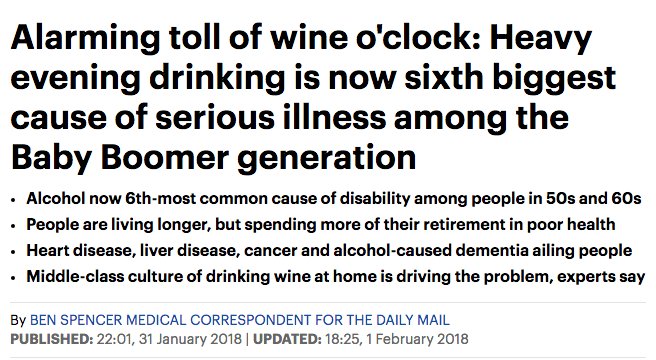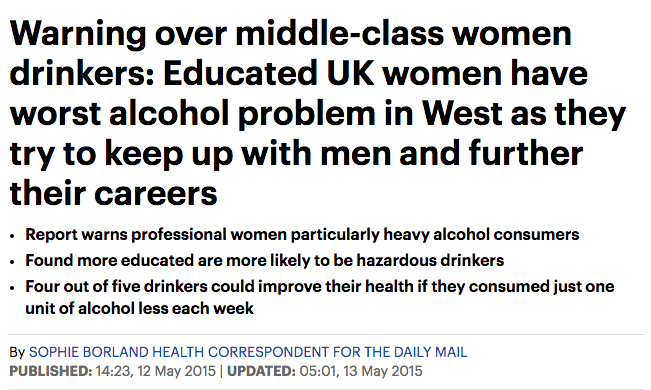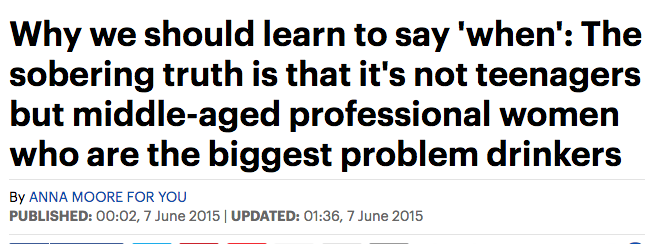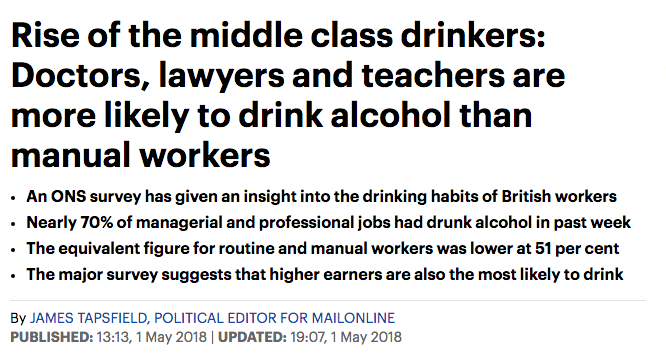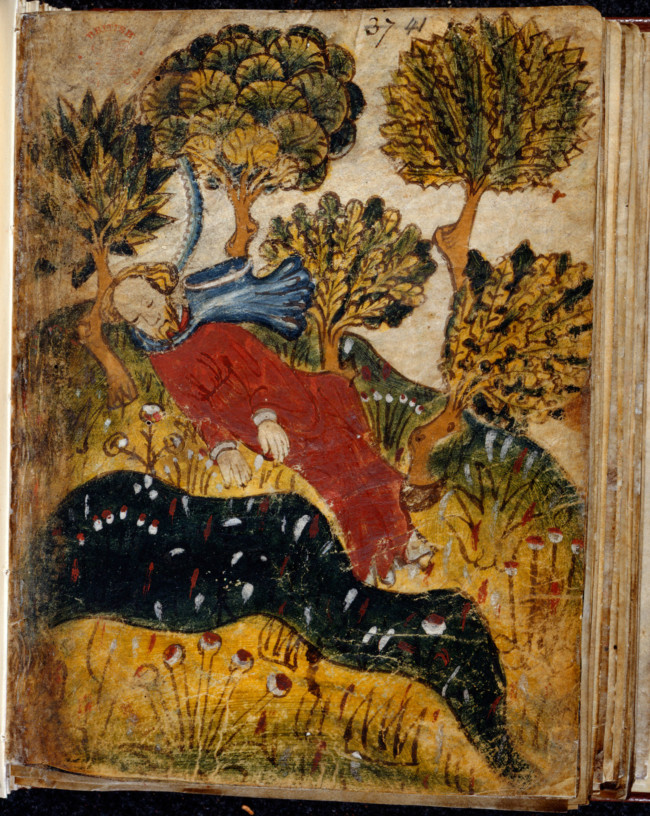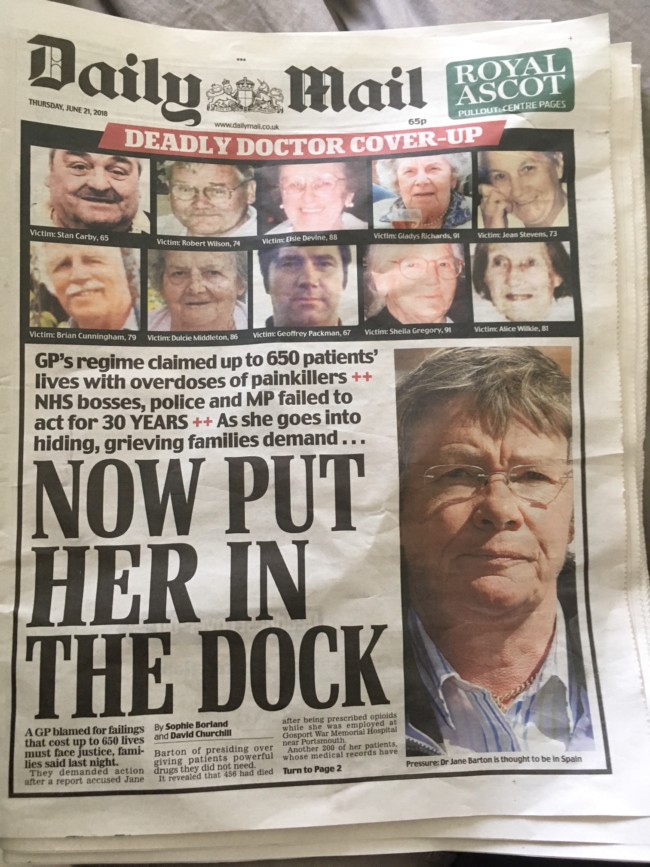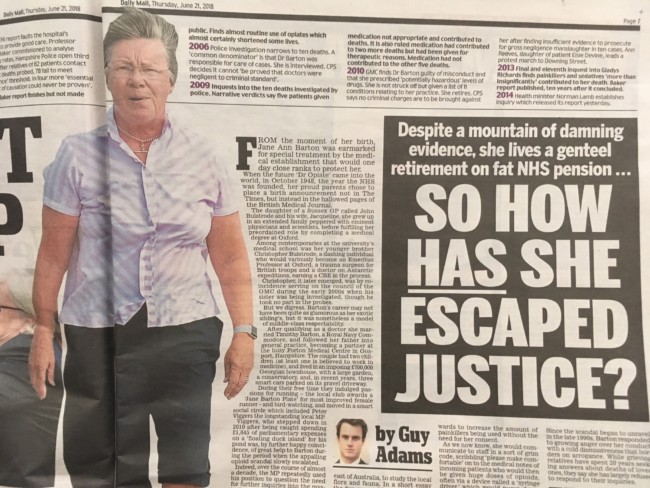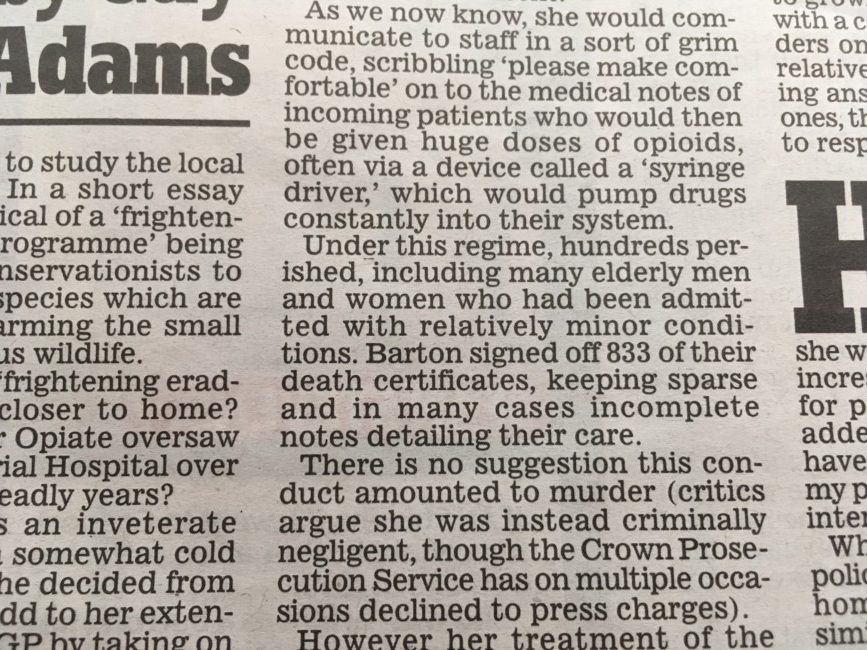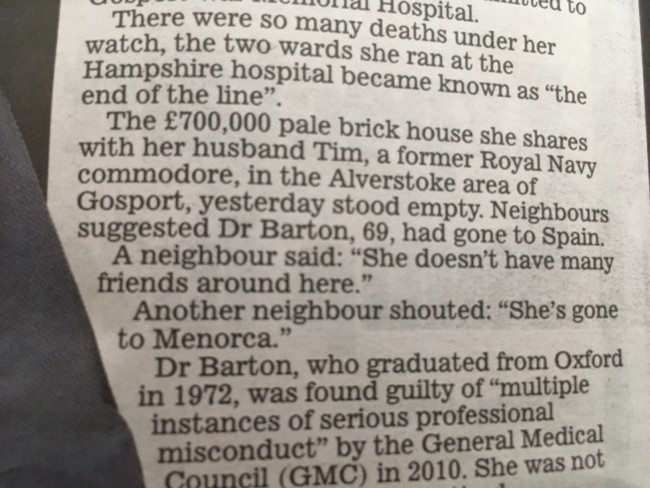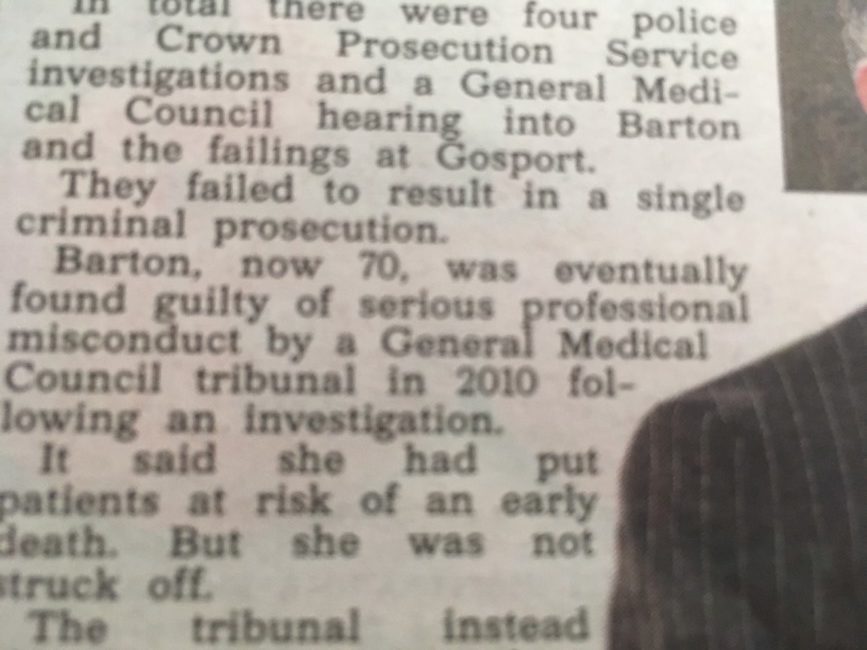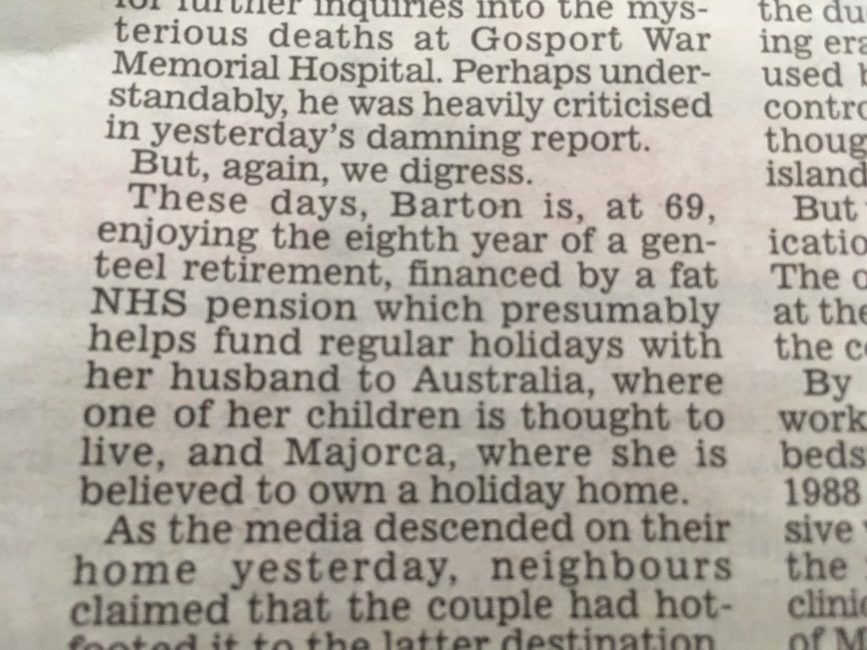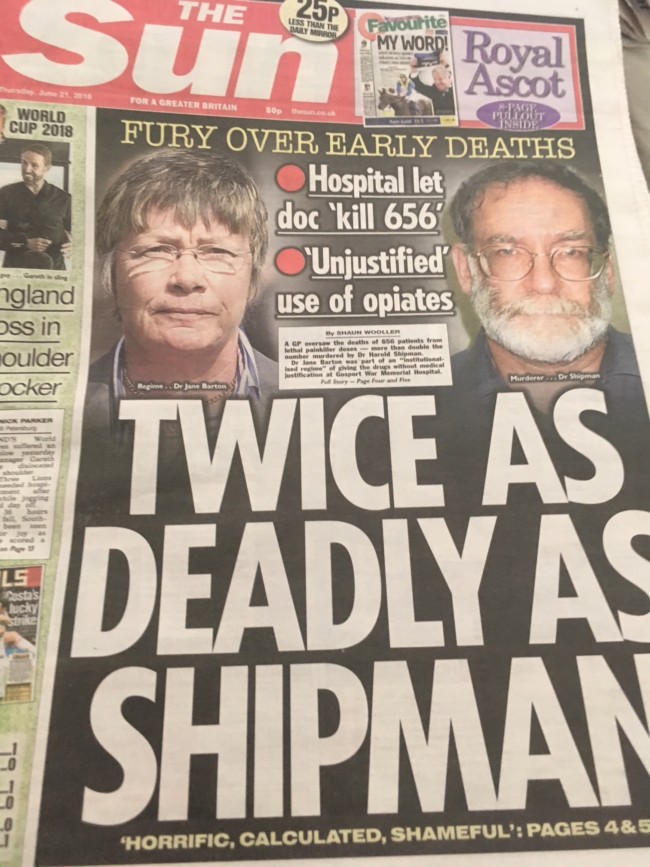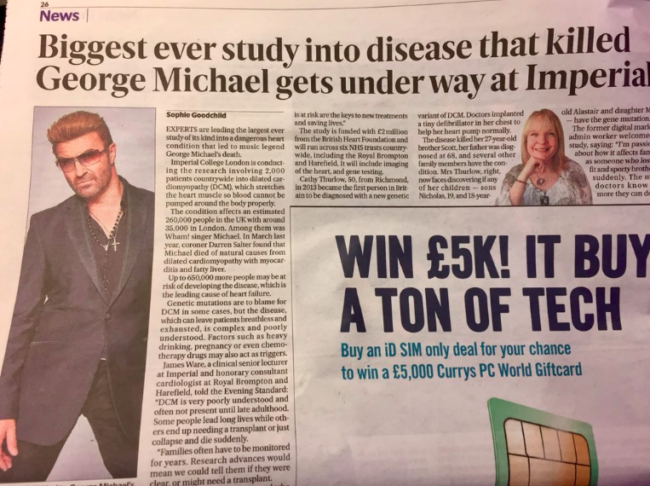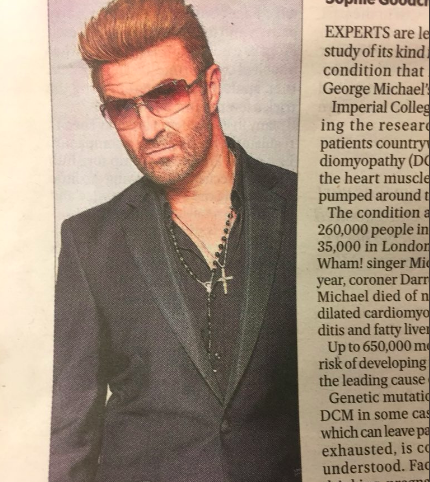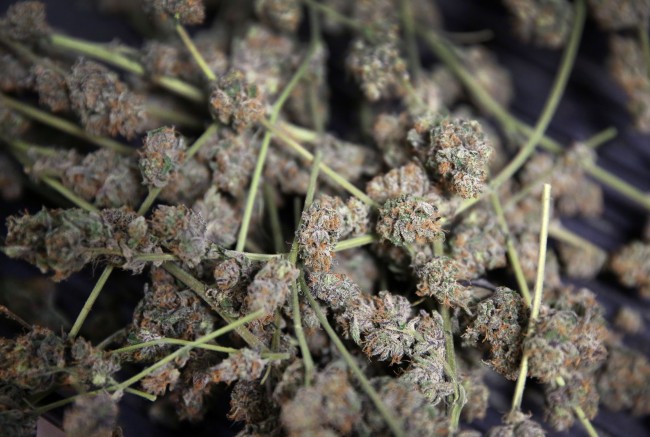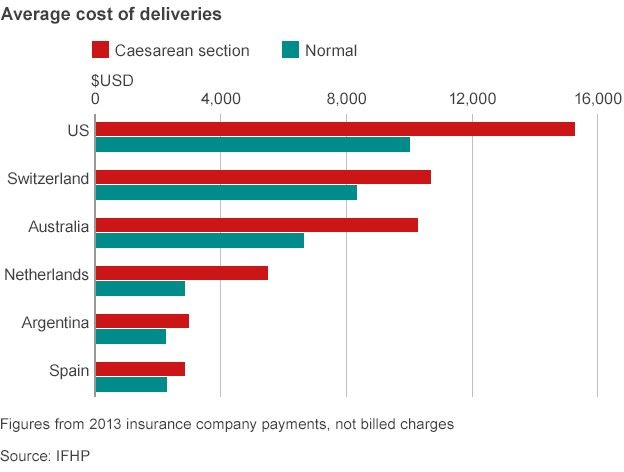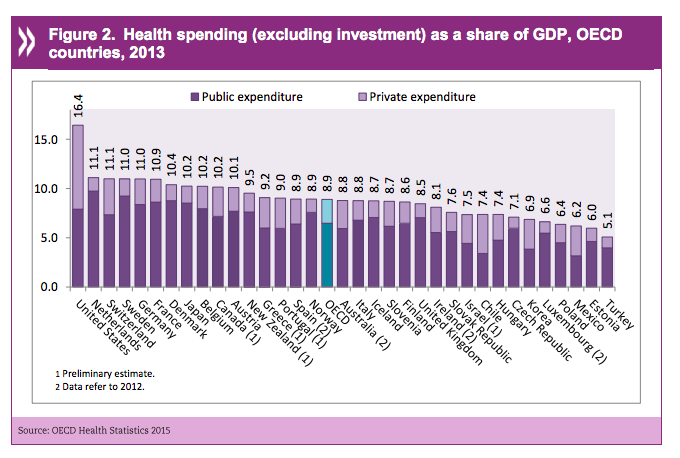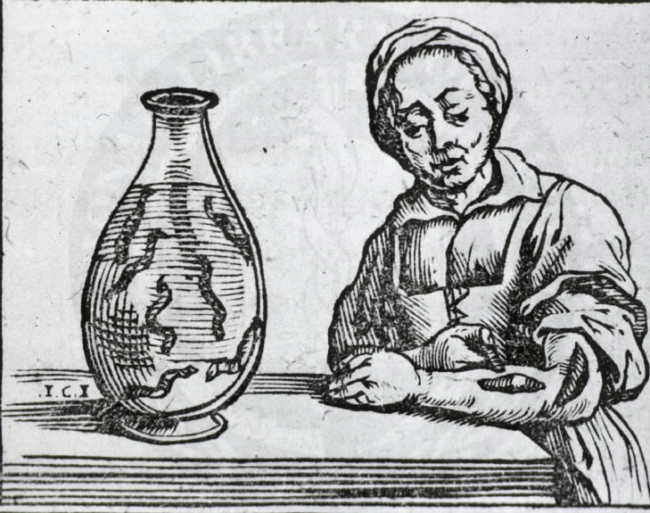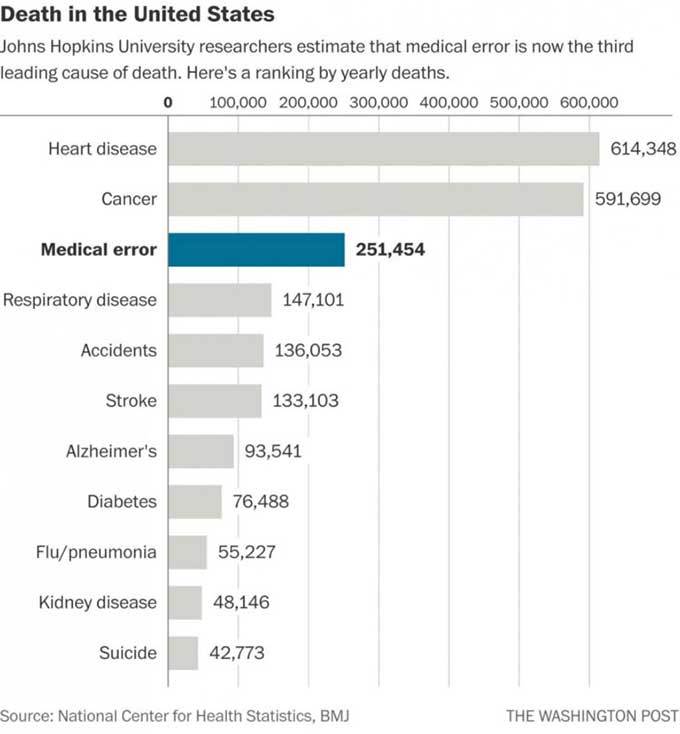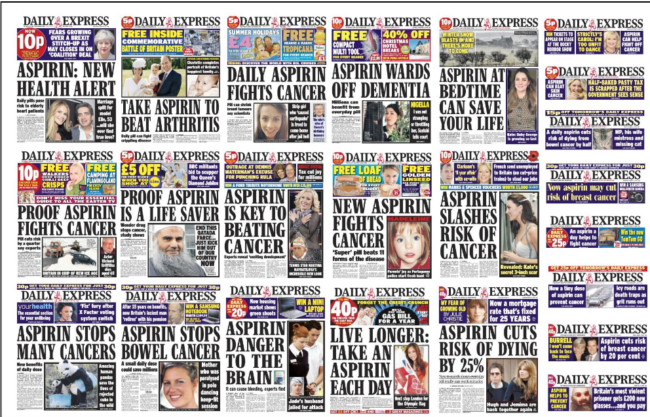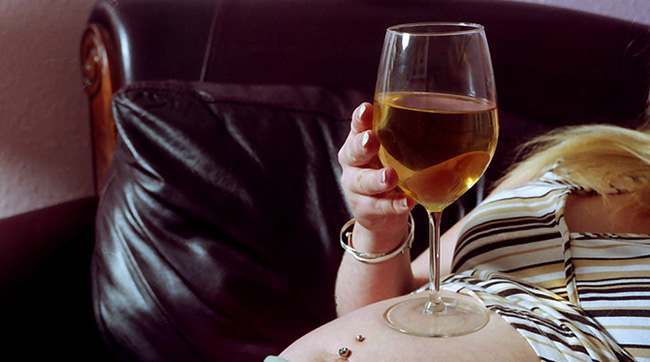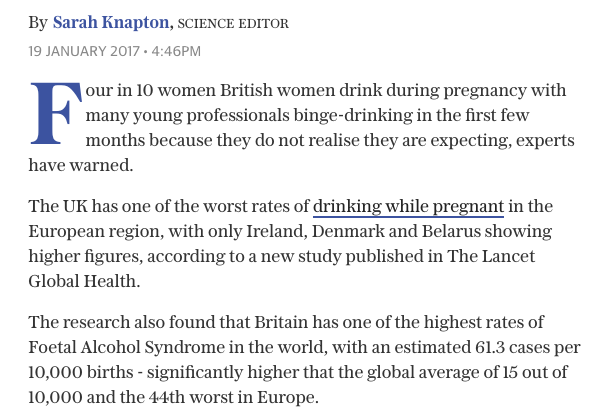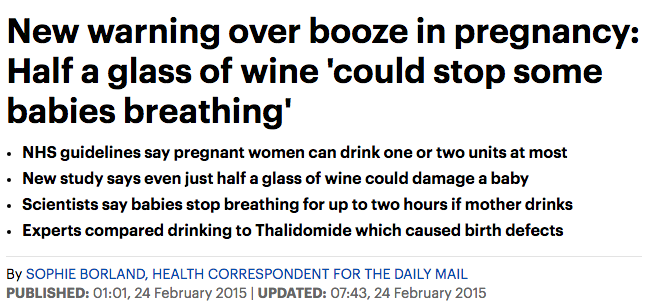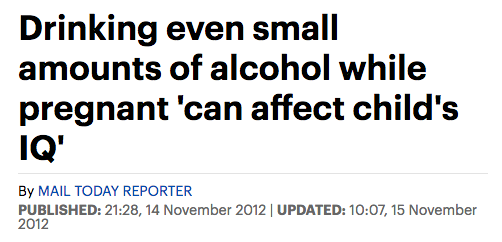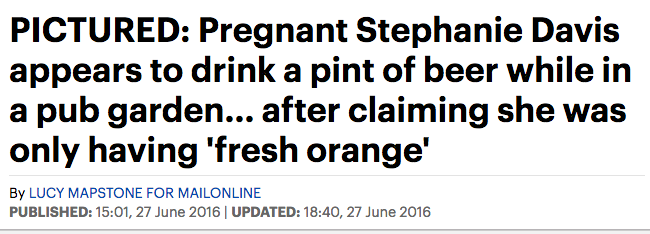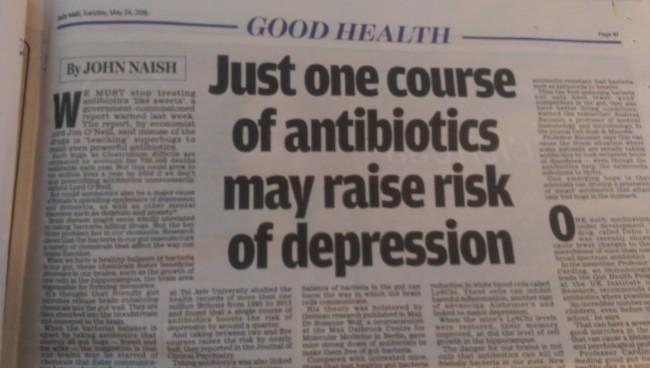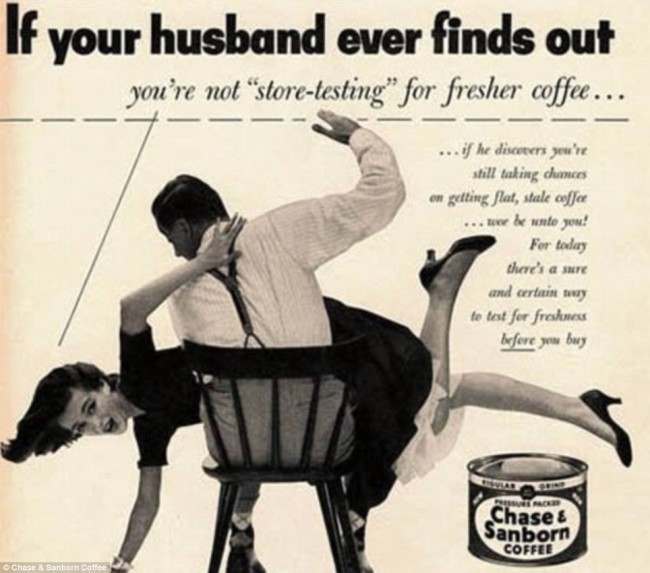Posts Tagged ‘health’
Poo found on every McDonald’s touchscreen tested
Is McDonald’s chasing the authentic farm-to-table experience by smearing poo on its touchscreen monitors, Touch. Inhale. And in an instant you’re cow-side at the farm. Metro reports on findings by the London Metropolitan University whose researchers found fecal matter on every touchscreen they tested across eight different McDonald’s restaurants – six in London and two in Birmingham. On all screens the researchers found coliforms – bacteria found in digestive tracts and turds.
Paul Matewele, a microbiology lecturer at London Metropolitan University, is quoted: “Touchscreen technology is being used more and more in our daily lives but these results show people should not eat food straight after touching them. They are unhygienic and can spread disease. Someone can be very careful about their own hygiene throughout the day but it could all be undone by using a touchscreen machine once.”
No proof that it has. But the theory is there. Maybe McDonald’s customers should be sheep-dipped on entry and exit? And is eight screens a big test? Surely not. McDonald’s operates approximately 1300 restaurants in the UK of which around 1100 are franchised. The Metro doesn’t say who owns the eateries the researchers checked. McDonald’s says it said cleans the self-order screens throughout the day. Sadly it doesn’t clean its patrons.
This research is thinner than, well, anyone who eats at a McDonald’s. The fact is that anywhere where people touch things without first washing their hands thoroughly present a risk of contamination. Why else do you think Ronald McDonald wears gloves?
Posted: 1st, December 2018 | In: Key Posts, News, The Consumer | Comment
Middle-class drinkers should ignore advice on safe alcohol limits
Shocking to learn that the middle-classes take more drink and drugs than the poor. The Mail calls the report by the Social Metric Commission a “landmark” finding. Having discovered that people with more money and leisure time use more mind-altering substances than those with less money, we wonder what else the Mail has revealed?
In 2016, the Mail told readers: “Middle-class drinkers can get away with drinking MORE because their otherwise healthy lifestyles make up for it.” Adding: “Wealthier drinkers are less likely to smoke, be overweight and have a poor diet – traits more associated with the lower-income demographic.” Today Ian Duncan Smith, the Tory MP, says: “Part of impoverished adults drinking less is that they do not have the cash to spend on it.” The other part being, presumably, that huge taxes on drink affect the poor more than the wealthy. He doesn’t mention that. He also doesn’t mention why politicians of all stripes want to clamp down on cheap booze with minimum pricing (see: sin tax for people seen as too poor, too thick and too dependent to know what’s best for ’em). But he does say: “This is not in the report but my own experience is that where people are drinking or taking drugs in poverty, it is at a very serious addictive levels. For the middle-classes, they are holding down a job and doing what’s expected of them.” Which is to say: paying more taxes.
But the overriding message is that drinking in excess of the Government’s stated limits does you no harm at all. Indeed, in 2007, an insider said that the recommended weekly limit of 21 units of alcohol for men and 14 for women decreed by the Royal College of Physicians in 1987 was a guess. Former panel member Richard Smith, a former editor of the British Medical Journal, revealed to the Times: “So those limits were really plucked out of the air. They weren’t really based on any firm evidence at all. It was a sort of intelligent guess by a committee.”
The Mail‘s readerships is very much middle-class. But having told the middle-classes that drinking more makes no impact on their health, the Mail also says that it is a huge problem for the kind of so-and-sos who say ‘wine ‘o’clock’:
The talk is of “problem” drinking. The middle-class “culture of drinking at home is driving the problem”. And you can narrow it down still further to educated women:
It’s hard to work out what the point of all this bilge is. Perhaps it’s just a prelude to tax rises, moves to hike the price of booze for our own good – even if it it’s not doing the biggest payers any harm.
Posted: 17th, September 2018 | In: Key Posts, News, Tabloids, The Consumer | Comment
Madeleine McCann: a bride of Christ, an old story and grief recast as a mental health issue
No word on Madeleine McCann in any of today’s printed tabloids. But there is is news on the web. Following the non-news that the Met might or might not seek money to continue Operation Grange, the investigation into the disappearance of Madeleine McCann in 2007, the Express online delivers: “Madeleine McCann’s father reveals mental health battle in HEARTBREAKING interview.” As ever it was, the Press are watching the parents.
Madeleine McCann’s father will speak about the grief and depression he faced over losing his daughter in a heartbreaking interview on Radio 4, in a bid to remove the prejudice men face when talking about their feelings.
What prejudice? No TV or radio show is complete without a man crying, whether it be over a DNA test on mid-morning telly or a well-baked cake on prime time. “I decided it was a good opportunity to say something about the special bond between fathers and daughters,” says Gerry McCann, “thinking that speaking openly might help other men in similar positions. It feels like the right time.” Fir enough. But isn’t there is a special bond between men and their children, regardless of gender. The sane can surely sympathise with parent whose lost a child, but why is this news? Someone from the BBC explains:
“We look at Gerry’s experiences, his thoughts and feelings, and the wider context in society of mental health issues surrounding a loss. Susan Roberts, our producer, has already interviewed Gerry over the past few weeks, it has been recorded and we are now doing the final edit. It’s very emotional and helps get across the point of view of mental illness associated with a loss or bereavement of a family member or friend, that there is no stigma in men opening up and discussing emotions with someone is important. In our show there is a parallel between the poem of a father’s loss and the real life experience, reflecting the two.”
Eh? Grief and loss is now a form of mental illness? It’s not a human reaction to loss. It’s a treatable condition. As for the tosh about men not emoting and expressing themselves, how may poems has the producer ever read? What about books, films, music and art? Did women write them all? As for facts about the missing child, we’re told: “There have been 8,685 potential sightings of Madeleine in 101 countries, but all of them have been ruled out.”
Over in the Mail, where the BBC press release is an “exclusive”, we learn:
He will be interviewed by poet Simon Armitage on a special Radio 4 show: Pearl: Two Fathers Two Daughters. The show will weave together two voices of grief: Mr McCann’s and that of an anonymous poet from 600 years ago who laments the loss of his daughter in a poem entitled Pearl.
Mr Armitage, who wrote a poem to mark the 1,000 days of Madeleine McCann’s disappearance, has written a new translation of Pearl. We don’t know who wrote the original version about the loss of a child and her father’s pain. The New Yorker reviewed the poem steeped in New Testament imagery and numerology in 2016. In one scene her father sees his lost daughter as the bride of Christ:
In the poem, the narrator visits the spot where a pearl once slipped from his grasp and got lost among “Gilofre, gyngure, & gromylyoune, / & pyonys powdered ay bytwene” (“ginger, gromwell, and gillyflower / with peonies scattered in between”). Swooning into unconsciousness, he comes to in a dream, in a place he has never been before, where cliffs split the sky (“ther klyfez cleven”). Across a river, he sees his pearl again, but now the “perle” is no mere thing—she is a young girl, richly arrayed in an elaborate outfit covered in pearls. Pearl also seems to be her name, or at least it is how the man addresses her: “ ‘O perle,’ quod I . . . ‘Art thou my perle?’ ” In reply, she calls him a jeweller, and he refers to her as a gem (“ ‘Jueler,’ sayde that gemme clene”).
Overcome with joy at finding his lost pearl, and unable fully to understand the complicated things she says to him, the dreamer plunges into the river to swim toward her. He is desperate to “swymme the remnaunt, thagh I ther swalte”—to swim across, or die trying. This angers the ruler of the celestial land, called the Prince: the dreamer does not belong there. He is flung out of his dream as punishment. He wakes up, and the poem ends with a short meditation on the glory of God, and then the words “Amen. Amen.”
The child in Pearl is dead. We do not know what happened to Madeleine McCann, save for her vanishing.
On a final note the Mail tells us:
The doctor’s new-found openness to help others cope with loss comes after Prince Harry, now Duke of Sussex, spoke about his struggles with mental health in a groundbreaking podcast interview on May 2017 with the Daily Telegraph’s Bryony Gordon for her revered ‘Mad World’ series. The young royal spoke openly about bottling up his emotions and being unable to grieve for years after the loss of his mother Princess Diana, who was killed in a car crash in Paris in August 1997.
From Princess Diana to Madeleine McCann. When private grief became celebrity mourning.
Posted: 17th, September 2018 | In: Key Posts, Madeleine McCann, News | Comment
After Gosport let’s rip up the NHS
Dr Jane Barton was in charge of prescribing medicine on the wards of Gosport War Memorial Hospital, Hampshire. The Sunday Times say she was “found responsible last week for the deaths of up to 650 people and a culture in which powerful opiates were routinely and recklessly prescribed”. Tough words. Surely her work “potentially contributed to the early deaths of hundreds of patients”? One thing is certain: this a scandal for the NHS to deal with. Health and Social Care Secretary Jeremy Hunt goes on the record:
“The basic problem is that if you are a doctor or a nurse and you see something going wrong – even if you are perhaps responsible for a mistake yourself – the most important thing, the thing that families want if they are bereaved or if they have a tragedy, is to know that the NHS isn’t going to make that mistake again.”
Is this to be an other story which ends with the line “lessons have been learned”?
“We make it much too hard for doctors and nurses to do that – they are worried that there will be litigation, they will go up in front of the GMC or NMC, the reputation of their unit – in some places they are worried they might get fired, so we do have to tackle that blame culture and turn that into a learning culture.”
The stand -out part of his address to the scandal is that “the lives of over 450 patients were shortened by clinically inappropriate use of opioid analgesics”. Live were shortened sounds like a euphemism. The Sun puts it on balder terms: their lives were “snuffed out”. Thinks ,less of the ignored whistleblower and families of the dead and marvel at how many people must have said nothing or worse. Says the Sun: “The health service is, in the main, an admirable institution. But it also gave us serial killer Harold Shipman, the Mid-Staffs outrage, the baby deaths at Bristol and Morecambe, and now hundreds killed in Gosport as staff closed ranks.” Anyone using the word “systemic” should be removed from the debate. This is about people. “Scandals like Gosport will be repeated until government targets are banned,” says one Guardian writer. Blame the system and everyone escapes.
Professor Sir Brian Jarman, director of the Dr Foster Unit at Imperial College London, says what happened at Gosport could be occurring elsewhere, because whistleblowers are “fired, gagged and blacklisted… nobody dare whistleblow in the NHS”.
The obvious question, then: why not blame the NHS and question its role? Why blame the system and not the body? Catherine Bennett wonders:
If the propensity to sanctify the NHS, to the point of worshipping it at the Olympics ceremony, helps explain occasional unwillingness to recognise its fallibility, and correspondingly exaggerated self-belief on the part of some practitioners, the Jones report doubles as a 370-page case for deconsecration. Although just a quick reading of Learning From Tragedy, p25, “a new approach to complaints and concerns”, would be a start.
And what of the technology? The Sunday Times has focused a report on the “cheap, faulty syringe pumps” used in palliative care.
The pumps, or drivers, used in the NHS for at least 30 years, led to the rapid infusion of dangerous doses of drugs into the bloodstream and made the behaviour of Dr Jane Barton — in charge of prescribing medicine on the Gosport wards — even more dangerous than had been thought
Would you put a member of you own family on such a pump – one you didn’t want to bump off?
The whistleblower said: “This could be one of the biggest cover- ups in NHS history. Anyone who has lost their granny over the past 30 years when opiates were administered by this equipment will be asking themselves, ‘Is that what killed Granny?’”
Amazing, no, how many old people can have “their lives shortened” before the rest of us take notice.
And what of the money all politicians of every stripe want to toss at the NHS? Is the NHS snow so big and bloated it can’t be questioned? If MPs and ministers can’t excerpt power over it, what chance does a nurse or hospital porter have of exposing serious wrongdoing?
A private word now: had I relied on the NHS I’d be living in a wheelchair or much worse. The NHS does much great work, but it was the sixth opinion – the first from a private doctor – that saved me. Our leaders venerate the NHS. It is beyond blame. But an organisation which has to cancel 50,000 operations to handle winter flu is not best serving the people.
Tim Black notes that questioning the NHS is heresy:
Few politicians question whether simply throwing money at the NHS is the best way forward. Or dare suggest that there are some things the NHS does, especially its intrusions into people’s lifestyles, that are detrimental to our political and social health. Or point out that its excessive managerialism and target-setting lead to routinised carelessness. Because, in the estranged world of the political class, invoking the NHS is seen as just about the only way to speak to us with any authority. The NHS is now the answer to nearly every party-political question. Why are we raising taxes? To support the NHS. Why are we leaving the EU? To benefit the NHS. Why are we better than them? Because we love the NHS more.
A final thought: if there were no NHS and we needed a body to provide medical care at the point of need at no extra cost, would anyone design the NHS as is it now? Surely not. It’s time to rethink the enterprise and come up with something that serves us all better.
Gosport Scandal: killing the old is easy but facts are hard
Dr Jane Barton’s is the face we are getting to know. The Mail leads with the demand “PUT HER IN THE DOCK”. On what charge? The Express demands “justice for hundreds killed by ‘Dr Death'”.
Dr Barton, dubbed ‘Dr Opiate’, is “blamed” for failings that costs up to 650 lives at Gosport Memorial Hospital. The dead were aged 62 to 99. the saying is true: if you want to be invisible, go grey.
A report “accused” Dr Barton of “giving patients powerful drugs they did not need”. The number of dead is staggering: 456 people died after being prescribed opioids “without medial justification”; the records of 200 more have gone missing. The Mail guesses that “they probably suffered a similar fate”.
Who needs fact when you’re talking about life, death and justice?
Dr Barton worked at the hospital between 1988 and 2000. The deaths making news occurred between 1987 and 2001. The report by the former Bishop of Liverpool James Jones does not mention her alone. His report is, says the paper, “scathing” about senior consultants, nurses, pharmacists and managers at the Hampshire hospital. None of them are pictured in any newspaper.
The dead have been the subject of reports, three police investigations, two reviews by medical bodies and 11 inquests. Nurses raised concerns decades ago. And not a single criminal charge has been levelled at anyone. The word conspiracy is flung around. Its reach extends to scores of people. But is it valid?
On pages 6 to 11, Mail readers hear more of the “deadliest coverup”. One fact seems notable above others: in 2010 the GMC found Dr Barton guilty of misconduct and that she prescribed “potentially hazardous” amounts of drugs. She retained her licence to practice medicine. The Mail says she was made the subject of sanctions, one being that she could not prescribe opiates for three years. In March 2010 Dr Barton retired on a “fat” pension.
We’re not being invited to sympathise with Dr Barton. But what we crave are facts. But the papers can’t get the most basic of those right. The Mail says Dr Barton is 69. The Sun says she’s 70. The Mail says she is in Menorca. The Express says she’s in Majorca.
It’s worth noting that Dr Barton has not been charged with any criminal offence – ever. But you know who has… Yep. Dr Harold Shipman.
Such are the facts.
Posted: 21st, June 2018 | In: Key Posts, News, Tabloids | Comment
Breast Cancer Screening – Why Should Jeremy Hunt Resign For Something Done Under Gordon Brown?
The National Health Service has never been very good at dealing with all this complicated computer technology stuff. The attempt, nuder Blair, to rewrite the computing system for the whole shebang spent billions – yes, really, billions of pounds – and ended up delivering nothing that anyone has ever used to produce anything of value. That was actually the world’s largest cock up ever. We also know why it happened. They tried to design the system, rather than just designing the rules about how systems should talk to each other.
That is, you don’t try to build a computer system for 65 million people, you only design interfaces so that different systems can communicate.
Now we’ve another dubber up in NHS computing. Something that should have been caught, this is just something that should not have happened:
Up to 270 women may have died as a result of an IT failure that meant hundreds of thousands approaching their 70th birthday were not invited to a National Health Service breast screening appointment.
It costs money to screen people for breast cancer. Therefore we only want to screen those either likely to have it or those we might be able to treat effectively if they do. Men do indeed get breast cancer sometimes but at a rate about 1% that of women. So, we don’t screen men and we do screen women. There’s absolutely nothing at all wrong with the idea that we don’t screen everyone for everything.
With breast cancer screening we go on to make another choice. This is a little more arguable, but just an extension of the same principle. Women up to 70 are offered screening every three years. Those over 70 are not. The argument being that even if a cancer is found in those over 70 then the costs of treating it won’t be worth it for the extra years of life gained. Yes, harsh, and arguable, but we don’t have an unlimited amount of money for anything and everything and so some limits do need to be imposed.
And then we get to the problem here:
Mr Hunt told the Commons the problem was caused by a “computer algorithm failure”, which led to some women not receiving their final breast screening when they were between the ages of 68 and 71. The problems happened between 2009 and the start of 2018.
The computer code which sent out the appointments for screening was wrong. It should have been sending letters, booking appointments, for women up to the age of 71 – it only sent them for women up to the age of 68. This is simply a bollix in the construction of the code. The programmers, the system designers, the managers who signed off on it, all were in the wrong. And that’s it really. Sure, mistakes happen in complex systems and this one did and shouldn’t have.
we’ve absolutely no information at all about who has died as a result of this. We think, perhaps, that some will have done. Using the same statistical models that we use to decide that screening should be done up to age 70 and not afterwards. But that’s it, we cannot say that Mr’s Smith died because she wasn’t screened, we just don’t know and never will at that level of detail.
Then we’ve got the usual interjection of politics:
The Liberal Democrat MP Norman Lamb, a former health minister, said it was essential the review investigated the use of algorithms in healthcare, saying they should be “closely monitored to ensure that we can fully trust the technology to operate in the interests of patients”.
Sigh. This isn’t an algorithm, this is a programming error. Lamb is just hitching this to all those fashionable concerns about what Facebook and Google are up to.
There are also, inevitably, calls for Jeremy Hunt to resign. Which is pretty odd, for why should a Tory Minister resign in 2018 for something which was done under a Labour Government, when Gordon Brown was PM, back in 2008/09?
The Fight To Own Alfie Evans
Alfie Evans ( May 9 2016 – April 28 2018) has died at Liverpool’s Alder Hey Hospital, where he has been since his parents took him there in December 2016. He succombed to a degenerative neurological condition.
But… Who had control over Alfie Evans’ life? Who owned him? That was the news story. It wasn’t his parents, Tom Evans and Kate James. It wasn’t the Pope. And it certainly wasn’t Alfie Evans, not since a judge said his brain had “been wiped out… [it] is almost entirely water”.
On 1 February 2018 lawyers for the hospital told a court that it would be “unkind and inhumane” to continue treating Alfie. But – yep – his brain was “wiped out”, so what harm in trying – further treatment could cause him no physical pain? The law said Alfie was effectively no longer a person but also said that he was one and that he should be allowed to die. Confused?
On 20 February, Justice Hayden, who we just heard from, said there was no hope for Alfie and sided with the hospital. His treatment would stop. Alfie’s parents appealed. And lost. The Supreme Court and the European Court of Human Rights rejected their right to appeal.
Questions abounded. Who gets to decide the fate of children? What is in Alfie’s best interests? Is a judge best placed to empathise with Alfie? Medical opinion and parental rights were being weighed by the law. The legal assumption is not one of parental autonomy. That should change. The other legal assumption is not that life is always preferable.
Alarming details include claims that unauthorised doctors posed as family friends to examine both Alfie and Isaiah Haastrup. May the Evans now be allowed to escape the politicised tumult that people like Christine Broesamle drew them into and mourn in peace. pic.twitter.com/0bcCB0ZUEY
— Archie Bland (@archiebland) April 28, 2018
The story went global. And it got nasty. On 6 April, Tom Evans voiced his intention to remove his son from the hospital. Police arrived to stop him. Hospital staff were abused by Alfie’s supporters. That was disgraceful. Pro-life Christians saw a cause to get stuck in to. American Evangelists tweeted furiously. The Pope wanted to help. Italy offered Alfie Italian citizenship, allowing him to be moved to the specialist private Bambino Gesu hospital in Rome.
But he never went. In the High Court, Hayden said that sending Alfie to Italy would be wrong and pointless. The Court of Appeal judges upheld his decision. The Supreme Court said “every legal issue in this case is governed by Alfie’s best interests… There is also no reason for further delay. The hospital must be free to do what has been determined to be in Alfie’s best interests. That is the law in this country.”
But surely once the medics had debated and decided that they could do not more for Alfie, he should have been free to leave their care. His release should have been a viable option for the parents. But the hospital kept hold of him, turning a patient into a virtual prisoner. They and the courts placed themselves above the child’s parents, the people who really did love and cherish him. The parents should have been allowed to decide what was best for their son. They did not ask the NHS to continue to fund their son’s care. They wanted to know that they had tried everything.
To be denied that is cruel.
George Michael impostor linked to singer’s death
The London Evening Standard freesheet has illustrated a story on the “disease that killed George Michael”. It’s done so with a picture of someone who is not George Michael (25 June 1963 – 25 December 2016 ). That’s a look-alike, who might well be alive.
George Michael’s death has been attributed to heart and liver disease. He had dilated cardiomyopathy with myocarditis and fatty liver. The coroner told us:
“Inquiries into the death of George Michael have been concluded and the final post-mortem report received.
“As there is a confirmed natural cause of death, being dilated cardiomyopathy with myocarditis and fatty liver, the investigation is being discontinued and there is no need for an inquest or any further enquiries.
“No further updates will be provided and the family requests the media and public respect their privacy.”
Illustrating a story with a celebrity is nothing new – but it’s a good idea to correctly identify the dead star you’re using to fuel the feature. The Standard says “260,000 people in the UK” suffer from dilated cardiomyopathy. Let’s hope their doctors are better at identifying them than the Standard is at spotting one victim.
Posted: 12th, April 2018 | In: Celebrities, News, Tabloids | Comment
Americans Are Odd – Why Execute A Terminal Cancer Patient?
There are times when it appears that the transatlantic cousins are more than a little odd. Their preoccupation with guns puzzles many this side of the Pond for example, their continuing love affair with executions meets with the approval of the vox populi over here if not with those who rule us. But seriously, who tries to execute a terminal cancer patient?
Part of this they did get right:
An execution in the US was aborted last week after the inmate was left with 10 puncture wounds when medical personnel were unable to find a vein after two and a half hours of trying. The failed attempts left behind a bloodied death chamber, the inmate’s lawyer said.
No, that’s getting it right. The purpose of the death penalty is to put the Fear of God into those who might commit a serious crime. A blood spattered execution chamber aids in doing that so why not? In fact, there’s a good argument that if a death penalty we’re going to have then the more public and gory it is the better. Why go with private and peaceful like a lethal injection in a prison when we could have breaking on the wheel in the public square? Evisceration perhaps? Either would be more of a deterrent.
But then there’s the part that they got wrong:
In court filings in the days before the planned execution, Hamm’s lawyers said he had terminal cancer and a history of intravenous drug use that had severely compromised his veins.
Yes the drug use will have made the injection more difficult. But the terminal cancer would make it unnecessary as well. In fact, why bother with the rigmarole at all?
It’s fairly well known that a death from cancer isn’t a pretty nor enjoyable one. That’s why those who die that way tend to go out on a cloud of morphine – these days perhaps the much stronger fentanyl. A prisoner whose veins can’t be found isn’t going to be getting useful amounts of either of those drugs now, is he? So, why bother with the execution?
Why not just with hold treatment for the cancer, including pain relief, and allow nature to get on with the rest of it? Possibly film it as an example to others?
For if we’re going to have death as a disincentive to crime then let’s make those deaths as awful as possible so as to increase the disincentive, the precautionary effect. And if we’re not doing it so as to dissuade people, as gorily as possible, then why in hell are we doing it in the first place?
Over-65s health benefits from cannabis: study
The case for use of medical marijuana grows more compelling as the European Journal of Internal Medicine publishes the findings of a study: 93.7% of OAPs benefited from cannabis:
During the study period, 2736 patients above 65 years of age began cannabis treatment and answered the initial questionnaire. The mean age was 74.5 ± 7.5 years. The most common indications for cannabis treatment were pain (66.6%) and cancer (60.8%). After six months of treatment, 93.7% of the respondents reported improvement in their condition and the reported pain level was reduced from a median of 8 on a scale of 0-10 to a median of 4. Most common adverse events were: dizziness (9.7%) and dry mouth (7.1%). After six months, 18.1% stopped using opioid analgesics or reduced their dose.
CONCLUSION:
Our study finds that the therapeutic use of cannabis is safe and efficacious in the elderly population. Cannabis use may decrease the use of other prescription medicines, including opioids. Gathering more evidence-based data, including data from double-blind randomized-controlled trials, in this special population is imperative.
Less reliance on opioids. That’s good, right.
Insurance or the NHS: who pays for the rising cost of childbirth?
What does it cost to have a baby on the NHS? The Guardian says: having a baby without complications costs £2,790; having a baby with complications costs £5,000. Those figures are supplied by the Nuffield Trust, an independent charity. The Mirror says it would cost you “tens of thousands of pounds” to have a baby were it not for the NHS.
Would it? Would you all really pay tens of thousands of pounds to have a child?
In the Guardian, another question arises today: “Why does it cost $32,093 just to give birth in America?” The inference, of course, is that the NHS does it much better and much cheaper that any other alternative system.
The answer to the Guardian’s question is simple: there’s insurance that covers it. It’s less about what it costs than it is about who pays the bill and how it’s paid. Indeed, in paragraph five, the paper notes that “insurance typically covers a large chunk of those costs”.
And then this:
Medicaid, a program available to low income households that covers nearly all birth costs….Childbirth Connection put the average out of pocket childbirth costs for mothers with insurance at $3,400 in 2013.
But things do look pricey in the US. The BBC has this graph from 2015:
Prof Gerard Anderson of the Johns Hopkins Centre for Hospital Finance and Management explains the costings:
“If you can make more money as a doctor by ordering more tests, you are going to order them and therefore patients end up getting more tests.
“You also pay a fee for services a la carte in the US so if you are worried about the pain of the childbirth and have an epidural, you’ll have to pay for it. If you ask for a painkiller after giving birth, you’ll have to pay for it. And all those costs rack up.”
Money is the incentive that encourages more expensive care? The piecemeal approach can create a higher final bill. The NYTimes reports:
Recent studies have found that more than 30 percent of American women have Caesarean sections or have labor induced with drugs — far higher numbers than those of other developed countries and far above rates that the American College of Obstetricians and Gynecologists considers necessary.
And here’s the hook. Anderson explains;
“If you don’t have health insurance in the US, hospitals and doctors will ask you to pay three to four times what someone with insurance will pay for the same service because no-one is negotiating rates on their behalf.”
Matt Yglesias drools over the possibility of getting the entire country under the government’s healthcare thumb. Medicare is a particularly revealing program idea in this respect. At a deep level, the left sees all of us as the equivalent of senior citizens, dependent on the benevolence of government for our needs and wants. Of course, they will provide our needs as they see fit – they’re good people, you know. And so much smarter than the rest of us. There will be none of that wasteful drug spending we now have. How dare Americans spend their own money on treatments they actually want? It’s inefficient! This remains the key template for liberals: citizens as permanent supplicants. Those who do manage to look after themselves? Don’t worry. They’ll tax you till you really do need the equivalent of Medicare. And expect you to be grateful for it.
Is the NHS efficient, providing heath care at the points of need? Not always. It spend lots of money on other stuff. In 2014, the NHS’s future was outlined in a policy document:
‘The first argument we make in this Forward View is that the future health of millions of children, the sustainability of the NHS, and the economic prosperity of Britain all now depend on a radical upgrade in prevention and public health… The NHS will therefore now back hard-hitting national action on obesity, smoking, alcohol and other major health risks. We will help develop and support new workplace incentives to promote employee health and cut sickness-related unemployment.’
Does your private quack do that? Would you want them to? Would you pay them to?
And is it fair to take one part of your ‘cradle to grave’ health needs out of context?
The OECD tells us that the UK spends less on health as a share of GDP than the USA:
The message seems to be: if you can afford it, get insurance and read the small print. If you can’t, be poor enough to qualify for help but don’t expect many of the optional extras. And then ask if the NHS – a tax-funded, free at the point of delivery healthcare provider – serves the needs to the patient best, how it compares to foreign alternatives and if we shouldn’t be looking at other solutions, including better funding for community care?
Billionaire donates £200m to investigate ‘baloney’ and spread bad science
Mega-rich Henry Samueli, a fan of “integrative medicine” (homeopathy) has donated – get this – 200m to UC Irvine. “The human body is a very complex and highly interconnected system. Therefore our healthcare needs to be looked at through a more holistic lens,” opines Samueli, who owns the Anaheim Ducks. “Our genetics, our surrounding environment, our nutrition, our physical activity and our mental state all play critical roles in our well-being.”
As someone who has been stricken by serious illness, I can says that I’m going with the science and the big machines over the pseudoscience, personal prejudice, propaganda, faith-based medicine guff that denies human progress in chemistry and physics.
Rebecca Watson is scathing:
Now they’ve given millions to UC Irvine, a public university, to set up a school for baloney….I mean “alternative medicine.” It’ll be called the “College of Health Sciences,” misusing at least three words in a four-word name, which is really pretty impressive.
I read about all this in a positively glowing article in the LA Times, which didn’t seek out a single voice to disagree with the idea that a college of baloney is a brilliant idea. The LA Times didn’t even consult the LA Times of six months ago, where they reported on another woman who took aconite as a remedy. That woman was hospitalized for weeks and then she died, because aconite is a poison. Susan’s aconite product must have been real homeopathy, meaning that it was just sugar water and there wasn’t actually any aconite in it at all. Otherwise, instead of getting better naturally from her cold she also would have fucking died, and then nobody would be giving millions of dollars to a public university to spread dangerous baloney.
As they say in Anaheim: Quack!
Spotter: BB
Medics kill twice as many Americans than strokes
The third biggest killer in the USA is death by medical error.
You go into hospital – but will you come out?
Daily Express overdoses on aspirin
The Daily Express has big news on aspirin:
A daily dose of aspirin poses a health risk, says the paper.
Or as it told us earlier:
Spotter: Liz Gerard
Everything you read about drinking during pregnancy is wrong
Everything you ever read about drinking whilst pregnant is wrong. Prohibition for the pregnant is unfair and unfounded. The Telegraph has news:
Advising women not to drink when pregnant is “sexist” and causes “needless anxiety”, senior academics have said.
Pregnancy charities and researchers have called for a change to the “alarmist” official Government guidelines, which warn expectant mothers to avoid alcohol completely.
They say the policy has no basis in evidence and ends up “stigmatising” women and excluding them from society.
No basis. So the dire warnings are wrong? Like this one which appeared in the Daily Telegraph:
If you want to be truly alarmed you turn to the Daily Mail, which has issued all sorts of dire warnings over drinking and pregnancy.
Just one glass of wine a week while pregnant ‘can harm a baby’s IQ’ – 15 November 2012
Women believe they can drink while pregnant – but one glass of wine could damage your baby for life -19/04/2008
Drinking alcohol while pregnant helps ‘create unruly children’ – 06/11/2007
Women who drink a glass of wine a day during pregnancy affect their child’s growth for nine years – 16/08/2012
And you can always shame someone with a long lens camera shot:
Who else needs a drink?
Posted: 18th, May 2017 | In: Broadsheets, Key Posts, Reviews, Tabloids | Comment
Health shocker: water contains less calories than beer
Health News sensation. The Press Association has news: “Swapping a daily beer for a glass of water cuts the risk of obesity by a fifth and aids weight loss, research suggests.”
Yep. It’s true. Consuming less calories can stop you becoming fat. Who knew? The newswire story then gets topped and tiled to become a scoop.
“Switching daily beer for water cuts risk of obesity, study finds,” says The Guardian:
Replacing a beer with a glass of water every day could cut people’s chances of becoming obese by 20% on average, according to a study. Researchers from the University of Navarra in Spain found that the same holds true for sugary soft drinks – having a water each day instead cut the risk of obesity among more than 16,000 participants in the study by 15%.
The Telegraph: “Experts at the world’s largest obesity conference said the simple change is an easy way of beating the bulge.”
We’re also told: “Experts suggested that the fact beer is so calorific may be to blame.”
In tomorrow’s shocking news: Katie Price sleeps on her back!
Posted: 18th, May 2017 | In: Broadsheets, Reviews | Comment
The NHS joins the goodly war on sugar
The mantra ‘Sugar is bad’ has been drummed in. It’s a good message, morally right, even. Sugar is linked to all manner of health curses, not least of all fat, which as we’ve been told is a social ill that costs the thin lots of money to treat and blocks our daylight. Fat people are ambulatory sugar turds, composite blends of ready-mealed scum and pig foreskins bloated on day-glow sugary drinks that mean on any given day just ten fat people seep more toxic gas than a stricken BP tanker. Indeed, if fat people would all hurry up and die, crematoria could turned into sources of renewable energy. Like being poor, being fat is your fault, you useless porker.
So the fat are stigmatised. And that’s good because now they can now they are wrong. It wasn’t genes. It was greed and apathy. Fat is not jolly as it was in the 1950s. Fat is weak and needy. And the thin, wealthy and knowing are here to help you to slim. And they will do this by banning sugar.
The NHS has moved to prevent companies operating stores on its premises – WH Smith, Marks & Spencer, Greggs, Subway, Costa and mote – hawking too much sugar. All companies must reduce sales of sales of sugary drinks to 10 per cent of total drink sales. This censoring – or as hipsters terms it, editing – includes cutting out fruit juice, which, as Rob Lyons points out, was once one of our fabled “five a day“. All vendors must agree to the proposal or have all sales of sugared drinks banned.
Lyons says the latest ban reduces “our freedom to choose what we want. It is an attempt to put health above any other consideration – like whether or not drinks actually taste nice, for example.”
The message is that people are too stupid and gullible to work out that sugar and inactivity leads to fat. The stuff must be removed from view lest these mentally-negligible dolts yield to temptation, as surely they must.
Very soon sugared drinks will be sold behind the counter; packing will feature pictures of morbidly obese men with their pendulous moobs trapped in zimmer frames and gargantuan women say side by side the Essex floodplains as a primary Thames Flood Barrier.
Having told you for years that fat is not your fault, but a condition that can be cured on a reality TV make-over show and the therapist’s couch, the knowing now tell you that is is your fault but you’re too thick to help yourself.
The one consistent view is that you are not clever enough to make your own choices in life. And the great news is that there is no end of illiberal know-alls willing and able to help.
Daily Mail scare stories: antibiotics and depression
It’s Health Tuesday in the Mail. Scare Story highlights are:
Page 47: “Just one court of antibiotics may raise risk of depression.” The thinking is if you take antibiotics, you cause in imbalance in bugs in your guts which upsets your brain cells’ ability to communicate.
You might have read the same tory in 2015, when it appeared on a website as, “Antibiotic exposure associated with increased risk for depression, anxiety.”
But what of one courts of antibiotics making you depressed?
Exposure to antibiotics was not associated with a change in risk for psychosis. A single course of antifungals was associated with a mild increase in risk for depression and anxiety, however, there was no increased risk with repeated exposures.
In The Gut Microbiome and the Brain, Leo Galland has more:
No, antibiotics do not directly cause panic attacks.
They can, however, exacerbate symptoms in those who already have anxiety disorders.
There has been a wealth of research in the recent years connecting gut bacteria to mental processes. This connection is aptly named the “gut-brain axis.” Antibiotics are prescribed to get rid of bacterial infections. Unfortunately, most antibiotics don’t just kill the bad bacteria, they kill the healthy bacteria living in your gut. This healthy bacteria has a lot of different functions, one being to line the gut and basically reinforce its “walls.” They can also influence neurotransmitters.
When you destroy these bacteria, it makes sense that you may notice a bodily change. This could be intestinal distress or mood changes. In scientific studies “germ-free” mice, or those without gut bacteria, are more reactive to stress than non-germ-free (normal) mice. It’s important to remember this is a mouse study, not a human study. It can give some important clues, but might not be the whole picture.
In short, antibiotics will not induce a panic attack, but may increase reactivity, making it more likely that a person prone to panic attacks will feel anxious. This can possibly turn into a panic attack, but with an established treatment regimen, it can be avoided.
You can read the the research first-hand here.
Beating back pain over and over in the Daily Express
How dod I beat back pain? Funny you should ask. The Daily Express has news on just how to beat back pain.

Standing up and moving forward – i.e. walking – can help.
Giles Shedrick has facts:
Seven in ten people have suffered recurring neck or back twinges for more than a decade, research has shown. The pain has forced three in ten to take time off work. Last year almost 10 million sick days were taken.
This augments Giles’s previous reports:
September 2015:
The official figures show seven people in 10 have lived with recurring neck or back pain for more than a decade and three in 10 took time off work last year… The number of sick days caused by the condition rocketed by 29 per cent to almost 10 million in the year to 2014.
Scoop!
Posted: 12th, January 2016 | In: Reviews, Tabloids | Comment
Caffeine-Use Disorder is as real as your hallucinations
Scare story of the day is found in the Daily Mail (natch.), wherein we learn of “caffeine-use disorder”.
Sophie Freeman asks:
But how do you know when your love of coffee has gone too far?
When you’re on a coffee drip? The answer is with boffins at Johns Hopkins University in Baltimore and the American University in Washington D.C.
Despite being the “most widely used psychoactive drug in the world”, caffeine can make you jittery, anxious and tense. A cup of coffee is the Daily Mail in liquid form.
As for the study behind the news of a new disorder to be treated by a new kind of therapy, the researchers surveyed 67 people. The coffee drinker were put on a “caffeine-fading scheme”, seeing their consumption reduced. They were given a booklet to “use between counsellor sessions”.
They were then locked alone inside their mum’s stuffy downstairs toilet for five days and invited to work through their delusions, nightmares and back copies of Readers’ Digest magazine.
Posted: 2nd, December 2015 | In: Reviews, Tabloids, The Consumer | Comment
Statins makes you age faster and live to 120, say Daily Express and Daily Mail

The Express has news to chill the ill: “Statins Age You Faster.”
A GP expert in the field said: “They just make many patients feel years older. Side effects mimic the ageing process.”
He is Professor Reza Izadpanah, a stem cell biologist and lead author of the research published in the American Journal of Physiology. He says:
“Our study shows statins may speed up the ageing process. People who use statins as a preventative medicine for heath should think again as our research shows they may have general unwanted effects on the body which could include muscle pain, nerve problems and joint problems.”
The paper cites another expert:
Dr Malcolm Kendrick, a GP in Macclesfield, Cheshire, who has studied heart health and statins, said: “Statins just make many patients feel years older. This research reinforces what has long been suspected. The side effects of statins mimic the ageing process.
“I observe patients on statins slowing down. Some are not affected, for some it is a relatively subtle process, but for many it is a serious side effect and one which disturbingly helps us confirm what we have long suspected.”
One research paper plus one GP’s opinion… Is that enough?
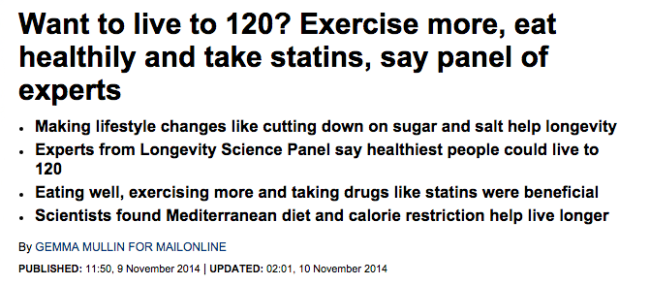
The Mail links to a report by The Longevity Panel – “The Panel independently monitors scientific evidence that could potentially explain changes and differences in life expectancy in the UK” . It says:
Research has shown that statins have effects that might directly slow ageing. They reduce inflammation, and slow down the rate by which telomeres shorten.
The Daily Mail has more on how taking statins could make you live longer:
Dr Alex Zhavoronkov, an anti-ageing expert, believes medical advances and knowledge of lifestyles will lead to a far longer life expectancy than has been seen to date…
According to the Office for National Statistics, a boy born in the UK today is expected to live to 78.8 years and a girl to 82.8 years. Many health experts think most people can exceed that by walking regularly, cutting down on fat, sugar and salt in their diets and using existing drugs such as statins.
The last word is from Professor Reza Izadpanah’s July 2015 study:
In light of our findings it is important to critically balance a possible benefit of statin therapy against the less favorable negative effects of statins. While here we present novel in vitro findings, future in vitro and in vivo studies should aim to better understanding the underlying molecular mechanisms as well as to assess a possible reversibility of long-term statin treatment on stem cell function.
In other words: we on’t know if stains make you age faster, but it’s an interesting idea. The Daily Express really is scaremongering.
Woman guilty of growing bladder cancer preventing marijuana to help sick husband
Good news for all tree lovers. London has a new “forest“. The Sun says a forest was “discovered” in a “remote part of Kingston, south-west London.”
The doubly good news is that this is a “forest of cannabis”. The less good news is that these days a forest need only be “the size of a football pitch” to qualify.
PC Sarah Henderson says the woodland looked like “a small forest of Christmas trees and was complete with a gazebo”. It sounds a pretty idyllic spot. So the police have destroyed it.
No-one’s been arrested. But if you want a look at the kind of hardcore villain growing weed these day you could do worse than look to Rawtenstall, Lancashire, where Jeanette Hurst, 58, has been arrested for growing marijuana plants.
Mrs Hurst’s husband Roy has cancer. She was using the weed in a bid to alleviate his suffering. At Burnley Crown Court, Mrs Hurst has pleaded guilty to production of a class B drug and also intent to supply to her husband. Her nursing earned her a 18 month community order. She says:
“It’s been 15 months of sheer hell – just hell. I just wanted it over with. I don’t know how Roy got through it but I have been having to put myself on the back burner because of him. I’ve been so worried about him.”
Mr Hurst has bladder cancer.
In other news:
Cannabis users were 45 percent less likely to contract bladder cancer than their more abstemeous peers, according to the National Cancer Institute (NCI) – a branch of the National Institutes for Health.
Such are the facts.
Watch: scientist hasn’t washed for 12 Years uses bacteria to ‘stay’ clean
American scientist Dave Whitlock says:
“No one did clinical trials on people taking showers every day. I have not taken a shower in 12 years.”
(Via Oddity Central):
….In fact, he says that the chemicals in our soaps and shampoos have destroyed all the friendly bacteria that once inhabited our skin and kept us clean.
Whitlock first started thinking about good bacteria when a woman he was dating asked him why horses liked to roll around in the dirt during summer.
No plumbing in the stable?
“The only way that horses could evolve this behavior was if they had substantial evolutionary benefits from it,” Whitlock explained. That’s when he realised that for the horses, this was actually a way of keeping clean.
Until then, no one had considered that skin bacteria was important and could be helpful to the body. “I didn’t have a biology degree – I wasn’t at an institution that was renowned for its biological research,” Whitlock said. “And I was proposing something completely off the wall.” But he went ahead and invented a one-of-a-kind spray – called ‘Mother Dirt AO+ Mist’ – consisting of ‘good’ bacteria.
Whether or not he scored another date is not known.
Posted: 12th, September 2015 | In: Reviews, Strange But True, Technology, The Consumer | Comment
NHS nurses ordered to wear the right socks or else
 What colour are the wrong socks? That question to readers of the BExhill-ion-Sea Observer, which reports on East Sussex Healthcare NHS Trust’s decree that staff could face disciplinary action because of the colour of their socks.
What colour are the wrong socks? That question to readers of the BExhill-ion-Sea Observer, which reports on East Sussex Healthcare NHS Trust’s decree that staff could face disciplinary action because of the colour of their socks.
The Trust’s uniform policy says sock must be plain and muted in colour. But staff at Eastbourne DGH and Conquest Hospital in Hastings are ordered to wear matching black socks.
Is black muted? Black is the colour of death and misery. Why not brightly coloured socks? What does the Trust have against them?
And why can’t female nurses wear black seamed stockings, like in the the Carry On films?
A staff member wonders:
“Coloured socks don’t affect how efficient we work. Most of us wear trousers that mean you can’t even see the socks – has there actually been any complaints from patients or relatives about our socks if they are visible? What happens if we refuse to lift up our trouser leg? They’ll be asking to check the colour of our underwear next. We’re not stupid – we won’t come into work wearing a dress with bright coloured socks pulled up to our knees. When we wear dresses, we wear tights and look professional and approachable to those who come first – our patients.”
Alice Webster, Director of Nursing, responds: “No member of staff has been disciplined for the colour of their socks.”
But if they do wear red ones, well, they’re asking for it.



